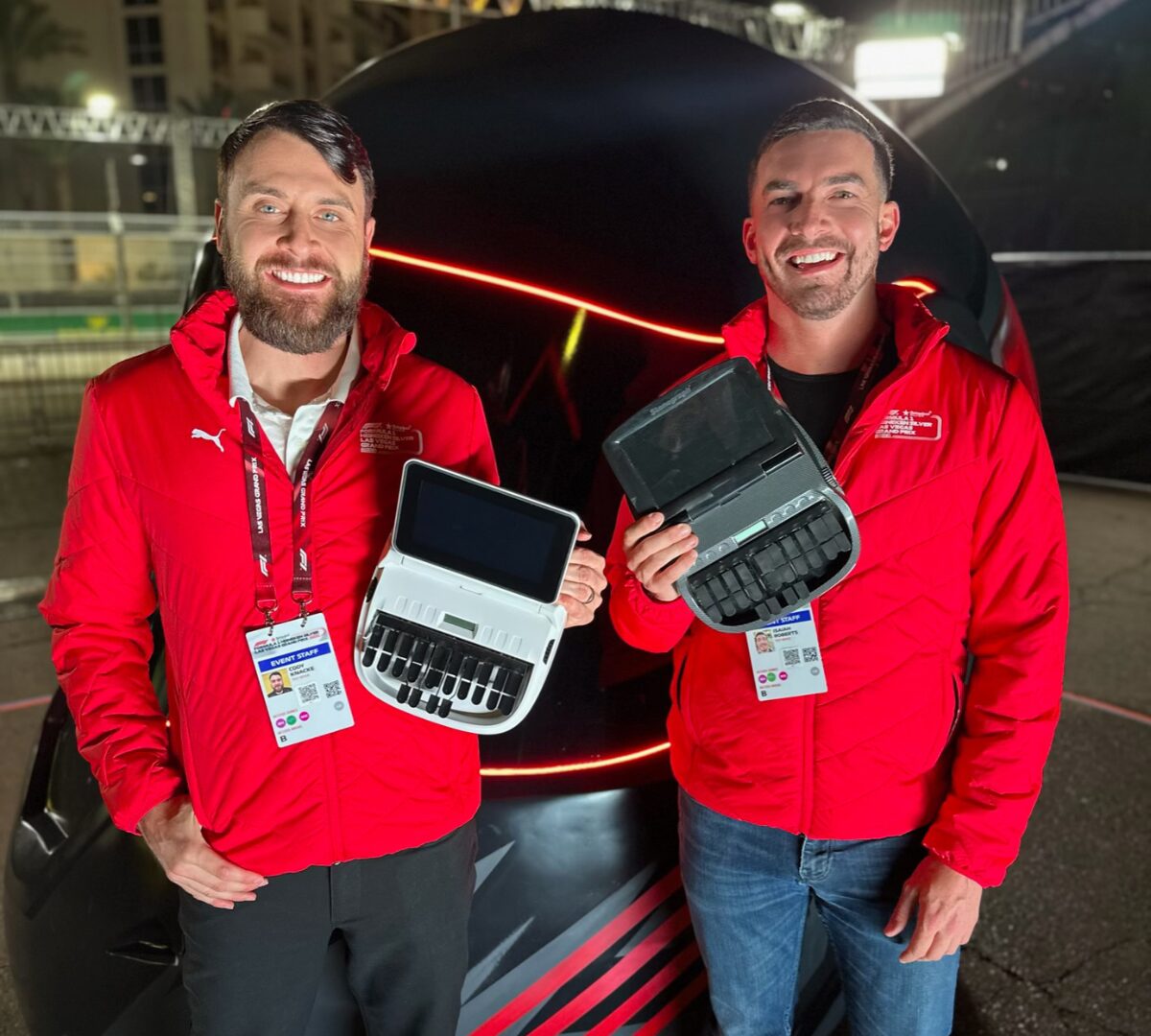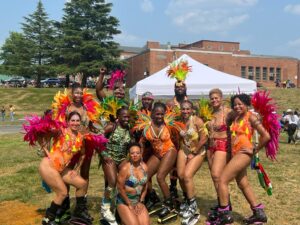As live events continue to evolve, the demand for captioning services continues to grow. From music festivals to major sporting events, captioning plays a crucial role in ensuring accessibility for a diverse audience. NCRA members Isaiah Roberts, RPR, a court reporter and captioner from Chicago, Ill., and Cody Knacke, CSR, RMR, CRC, a freelance court reporter and captioner from Ontario, Calif. , who are also business partners at TextNexus Captioning, have been at the forefront of this movement, bringing realtime captioning to high-profile events such as Coachella and, most recently, Formula One racing. Their journey highlights the growing business of live event captioning, the challenges involved, and the exciting future of this essential service.
The challenges of live captioning
Providing realtime captions at large-scale events comes with some unique challenges. The physical demands are significant. Captioners often must navigate sprawling venues, from massive festival grounds to complex racetrack layouts, all while carrying their equipment.
“You definitely get your steps in,” Knacke joked. “At the racetrack, for instance, we’re constantly moving between different captioning locations. And when you’re working at a festival, you’re dealing with unpredictable schedule changes, background noise, and high-energy performances.”
The expanding role of captioning in live events
Live event captioning has become a game changer for accessibility, offering attendees who are deaf or hard of hearing a way to fully experience performances, panel discussions, and sporting events. Many attendees have even expressed their gratitude directly to Knacke and Roberts upon discovery of their captioning.
“Some people plan their attendance around accessibility services, checking websites in advance to ensure they’ll be able to fully engage,” said Knacke. “Others stumble upon the captions at the event and are thrilled to realize they can follow along.”
Captioning doesn’t just benefit those who require it for accessibility reasons; it also enhances comprehension for festivalgoers in noisy environments and non-native English speakers.
“We use the best equipment and software available to keep up with the speed of Formula One commentary,” said Roberts. “It’s a mix of skill, preparation, and technology coming together in real time.”
With an international audience relying on accurate captions, their role has become essential in making the sport more inclusive and accessible.
“Formula One moves at an incredible pace, and captioning it in real time requires a unique skill set,” said Roberts. “We’re dealing with fast-spoken commentary, multiple accents, and the need for near-instantaneous accuracy.”
The business of captioning: Growth and innovation
The increased demand for captioning services has also led to expansion opportunities.
“Remote captioning has really opened doors for us and for event organizers who might not have the budget to fly in a full captioning team,” said Roberts. “We’ve also started working with other captioners to meet the growing demand. Even if we can’t cover every event personally, we want to help make captioning a standard offering.”
Roberts and Knacke said they are in talks with other festivals and venues as potential future ventures.
“We’re trying to navigate what it would take to make captioning a standard feature at major venues,” said Knacke.
Looking to the future
Despite concerns in the profession about AI and automatic speech recognition (ASR), both are optimistic about the profession’s future. Knacke was quick to point out that ASR systems still struggle with accuracy, particularly in live environments where sound quality, speaker accents, and complex dialogue require human discernment.
“The best part about a human captioner is that we know what we don’t know. AI might confidently output a completely incorrect phrase, whereas a trained professional knows when to leave something out or mark it as unclear,” he said. “Beyond that, human captioners bring a level of formatting and readability that enhances the viewer’s experience.”
Looking ahead, the two men are hopeful about the future of live event captioning. “We love still having the opportunity to work in the courtroom as well as caption these live events,” said Roberts. “It’s an incredible mix of work. We love what we do, and we’re excited to see more events recognize the value of accessibility.”














